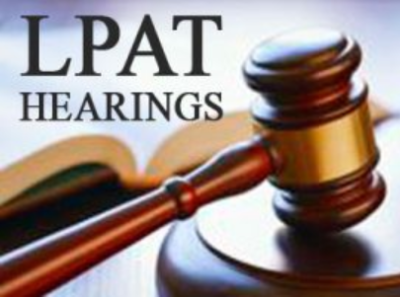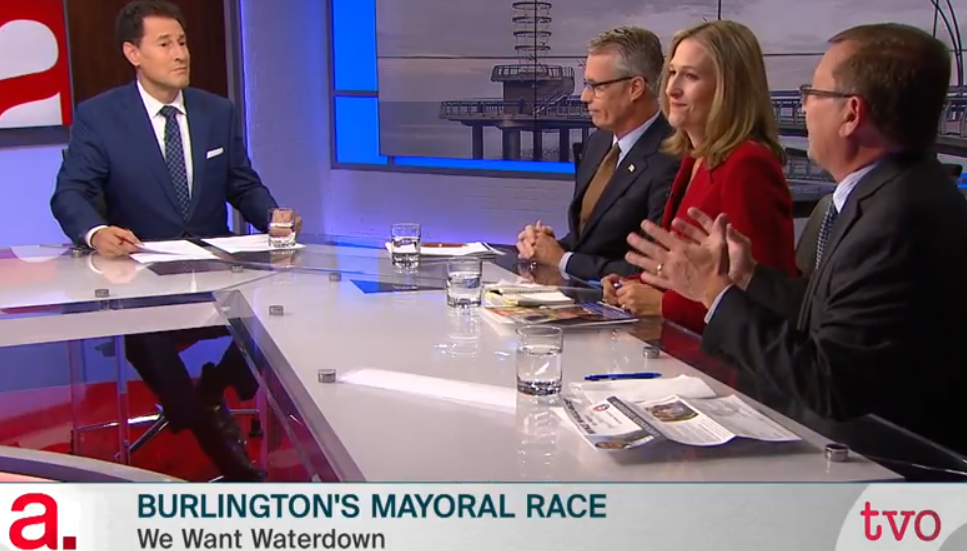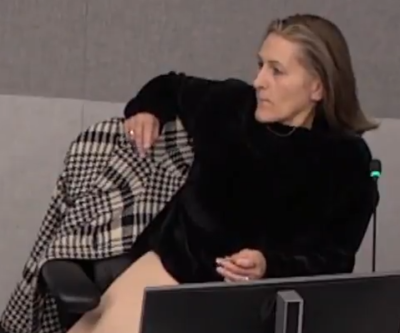March 5th, 2020
BURLINGTON, ON
Those troubling 31 appeals to the city changes in the Official Plan?
Here is what we know.
On January 30th, the city passed an amendment to the Official Plan and made changes in the zoning for some of the property.
The city had the power to do that. Most of the current council was elected to bring about a change in the Official Plan and the zoning bylaw.
 The Mayor declared at the time that it was an historic day for the city. It may well be historic – but for a different reason.
The Mayor declared at the time that it was an historic day for the city. It may well be historic – but for a different reason.
Anyone who doesn’t like the change in the bylaws, in this case the Official Plan and the existing bylaw regimen, has the right to appeal.
No one expected or was prepared for the 31 appeals that were filed within the 20 day appeal window.
Executive Director Heather MacDonald did say that appeals are not unusual and there were hints from some of the planners and legal counsel that were delegating to city council that appeals might be forthcoming.
But 31 of the things? That is astounding and troubling on several levels.
We do not yet know just what the appeal documents say. We do know, or suspect, that they are appeals against the change in the Official Plan and the change to the zoning bylaw. Even that is speculation – the public has not seen the documents. The Mayor has, the Executive Director of Planning Heather MacDonald has, as has Nancy Shea Nicol, the Executive Director – legal.
We know that the members of Council have been briefed – to what degree is not certain. They have all lost their tongues.
The 31 appeals that were filed were delivered to the City Clerk. The Clerk has 15 days to send the appeal documents along to Local Planning Appeal Tribunal ( LPAT), the body that hears the appeals. That 15 days is reported to end on March 12th.
The members of LPAT are appointed by the province who, recently, appointed additional hearing officers and, troubling, decided not to re-appoint some hearing officers who had the reputation of being concerned about the environment but appointing several that come from within the development industry.
The Mayor has said she would make the appeals public but has yet to do so.
At some point the specifics of each appeal will become public.
In the meantime people in Burlington who pay attention to these things are concerned about:
1) What is it going to cost the city to fight 31 different appeals?
2) What if the city loses at the LPAT level – going to Cabinet with a request to overrule LPAT isn’t viable with the current government.
3) Will losing the appeal mean that all the work done on a new official plan for the city is now all for naught?
4) And what if, adding insult to injury, the city is stuck with the costs of the appellant?
It is the uncertainty that bothers the people the Gazette is hearing from: “Can’t the Mayor say something” is the phrase we are hearing most often – and not from just a handful of people. Scores is a better unit of measure.
Was the Mayor in over her head with the approach she took?
Did she ask the hard but appropriate questions to staff – like what could go wrong?
Risk is now a hot topic for the bureaucrats at city hall: was the risk on the approach taken by the city fully considered?
These are not polite questions but the answers are critical.

Meed Ward was superb in the TVO debate – well prepared and new when to pounce. The city isn’t seeing that same person during the troubles with the Official Plan amendment appeals.
Marianne Meed Ward talks frequently about the need for media that serves the wider community and makes mention of her experience as a journalist. She was never a journalist – she has been an editor and did write a column for the Toronto Sun. She is very effective on television panel discussion programs. She was stunning on the TVO election debate.
Developers looked at the rules that were put in place when the Urban Growth Centre was accepted back in 2006. The city didn’t have to accept what the province handed out – Oakville didn’t. They negotiated different boundaries for the UGC.
The Mayor has hinted strongly that she intends to approach the province for a shift in the UGC boundary to something that begins at about Caroline Street rather than the current Lakeshore as the southern boundary.

Nick Carnacelli, centre, listening in on a conversation between Mark Bales on the left and Rosa Bustamente a city Planner. Bales is a senior vice president with the Carnacelli real estate interests.
The appeal situation is troubling – we don’t believe anyone expected the volume. The development community is making this their stand on what the current Mayor, and most of her council, want for the city.
The odds at this point are not on the side of the city.
Is the Mayor fiddling while the city burns?
She does use social media to get her story out but has yet to hold a media event where direct questions can be asked. Social media is, unfortunately, a one way tool – the writer says what they want to say and while you can comment there is really no give and take. The politicians love it that way – but it isn’t healthy for a democratic society.
Salt with Pepper is the musings, reflections and opinions of the publisher of the Burlington Gazette, an online newspaper that was formed in 2010 and is a member of the National Newsmedia Council.





















Tom,
When has the City ever been able to defend itself successfully at LPAT? If as you say we are at war then in order to be victorious there has to be a strategic plan in place. In this case deep pockets and the right professionals to make this happen.
Do you think that Burlington is positioned to do this? Are you willing to increase your taxes to pay for the litigation coming down the road, with questionable results as to being successful?
The city’s silence on this speaks volumes.
I think you need to reread my several comments published here and in correspondence that speak to this situation to see what what my answer is to your comments, and my logic and reasoning in support of that position.
From what I see right now, this is an historical challenge to Burlington’s rights of self determination and expression, and I don’t think the City has any choice but to fight, or give up forever any control at all in how Burlington develops anywhere and everywhere. I use war just as an analogy to emphasize the significance that I see.
You seem to seriously imply that we should just surrender, regardless of the consequences, and I will never support that. I cannot see how that would ever represent the interests of the residents of the City.
I am willing to pay whatever it takes to fight against this onslaught of vested interest money and power trying to bring our rights in this to its knees. Bring it on. This is not over by any means, but you seem to want to retire from the field, to give up already.
Frankly, I don’t think LPAT is up to taking on 31 different appeals on top of the present work load. From my experience, I don’t think they have the competency to adjudicate such a scenario and basis for the appeals. I would suggest and advise a lot of consolidation of what the issues are, which has to be done anyways.
In my view, and as I have said, the issues are about the developers want more and they want to control the OP and Zoning in their own image or they will do, like they have just done, take the backstop they have been given by the Province in LPAT.
So these appeals share common issues that pit developer hired “qualified expert opinions” versus – if this adjudication process is to be kept honest – opposing City, Regional, and other Parties and Participants “qualified expert opinions” about consistency with Provincial policies and Growth plans, versus the City and Regional OPs and Zoning.
Since I cannot see any specific fully complete applications and proposals to adjudicate and judge, the individual appeal cases are about higher order arguments of what heights and densities are to be allowed at the precinct level more or less.
Any manager worth their salt can construct an argument to consolidate the appeals around these issues (to be discussed and agreed to), and move towards a global contested Hearing if that’s what happens, or a Mediation that is not held in camera but as part of the Hearing process with everyone on board.
This consolidation is an idea that needs to be publicly discussed and your organization and others in the City, could start to develop these ideas as an alternative to surrender without thought.
Material exists in the staff and consultant reports produced as part of the just completed process developing the OP and Zoning amendments just approved by Council. Every parcel of land in the subject areas has an extensive policy discussion and rationale underlying the amendments being contested.
I don’t see any reasonable rationale to restrict the fight to each and every appeal separately when the contests are not about definite specific metrics extensively defined in planning language, but rather broad and often vague policy statements and opinions, sometimes arbitrary, from hired experts who are then self qualified in a process that restricts and biases what is recognized by the Tribunal as fit to hear.
As far as your question about City success at LPAT, I don’t see it so dismally as you seem to.
Right now my recent engaged experience of 4 appeals of the City with LPAT is when the City actually had a settlement agreement and there was no contested hearing. In all of these, the appeals were based on a failure to decide.
There are others that also fit in this pattern of fail to decide goes to appeal. Then negotiate to settle, and everyone agrees, except the residents.
The ADI appeal was another appeal that resulted from a failure to decide by the timeline, but I was told this was a betrayal of normal negotiation and manager approval practice, and a leak of the City refusal recommendation that allowed ADI to appeal last minute.
This ADI case is a bad example to use to decide how Burlington can defend successfully. Frankly, they were in the mindset of the previous Council, City Mayor, City Manager, Deputy City Manager, Planning Director, and basically all Plan.ning staff, in the midst of reviewing for and constructing what is now the Adopted but not approved OP. They were also stuck with a really not considered MTSA and Urban Growth Centre designations for Downtown
As a result, in my opinion, the staff were not yet armed with the new Adopted Plan, but only the Existing Plan, were caught in the Managers and mindset I noted, the ill considered MTSA ,and at LPAT it appeared they could not construct and frame for the one-person Chair a defensible alternative proposal to build that bettered ADI.
I would definitely say that things are different now. I would hope that this will never be repeated. If Burlington is not positioned to deal with this situation, then they better get there pronto, no excuses – this is their plan and it is defensible they say, so for now, I for one, am willing to go with it.
As I indicated above, the tax needs I can live with to fight to preserve these rights of self determination and control of where I live. The City has deep pockets and the professionals that put together these amendments being contested must be given the charge of defending them. If we do not do this what do you think this will do to the morale in City Hall.
Legal I think, needs to work on the consolidation of the Hearings. I have been told many times that in legal matters, especially politically structured adjudication institutions, and planning and development issues, nothing is ever certain win or lose.
If need be to get things rolling, the Mayor might have to kick some butt as it is her butt that is on the line. The same goes for Council and its credibility. Get in charge.
In my opinion, the city silence in good part reflects the gravity of the situation and the need to get the strategic plan we know is needed put together.
As I said, this is I think, an historical event in the City and time is really on our side.
In this, recall that while patience does not always work, impatience never does.
I concur fully, Tom.
I guess we still don’t have the proper people at City hall beurocrats or Councilors. Why would you think someone who paid multi millions of dollars for a property today and tommorrow they changed the rules. Are people at the City so naive to think a deveoper is going to say o’well and walk away, especially when you gave the other guy 23 stories downtown.
I appreciate your picking up on that subtle mixed analogy – I caught it myself after submission.
Nonetheless, I think my point is emergent.
If the City wants to repel the obvious mass assault on the OP they need to fully understand the threat and do a better job of defense than the bad guys did in the real Normandy.
The mass appeals are the assault on the beaches that were in fact not repelled, and the whole Third Reich was lost.
I hope it is not a Normandy scenario, where the invaders were the good guys who ultimately won and the defenders were the bad guys who lost.
My comment above went astray to Doug when it was meant for Steve. Here it is.
I appreciate your picking up on that subtle mixed analogy – I caught it myself after submission.
Nonetheless, I think my point is emergent.
If the City wants to repel the obvious mass assault on the OP they need to fully understand the threat and do a better job of defense than the bad guys did in the real Normandy.
The mass appeals are the assault on the beaches that were in fact not repelled, and the whole Third Reich was lost.
Looking seriously at the appeal deluge you can look at it like a Normandy Invasion model, where the invaders are the developers and these appeals are the first line of attack on the city amendments as beaches.
Consider that the reality that the entire OP and Zoning rules for everywhere in the City is the real strategic end-goal, not just the appeals as the first line of attack. You need to take this big picture to see what the stakes really are.
Think about this, because if the developer mass attack succeeds on the beaches, if they can breach and overcome the first line of defense for city planning control, they can, and will, take over the whole City plan piece by piece because of the consequences and the precedents.
Some comments here avoid this big picture. They portray the amendments under attack by the appeals, and the cost of fighting them, as a favor, or whatever you want to call it, for Downtown at the expense of everywhere and everyone else.
That’s how they present themselves as not living Downtown, and therefore they want to know what’s in it for them, and all the other people in the City, not Downtown, they presume to speak for. However, for everyone in the City this is a dangerous blind eye to the consequences.
This blind eye yields a false portrayal. Defending against the appeals is the first line of defense, with an offense against the developers taking over the whole Plan and development everywhere in the City as a consequence and precedent.
In this Normandy model, the Mayor as Commander, and the senior Legal and Planning staff as Generals are not about to announce their Operation Overlord plan to win the appeal war, especially on almost the first day.
Normandy was won because time was taken and resources applied to understand the problem for what it is – a loss of control and self determination for the entire larger community in terms of who is in charge of what is done.
We need to take the time to develop a strategy and plan to do just this, to continue the path we have been on to get a plan for development control.
We need nothing else to divert us with distractions like referendums and more public arguments that just continue the election campaign bad talk.
One problem I have with your approach is that it suggests going to war with the developers is the only answer. This “Us versus Them” mentality needs to change. It’s that very mentality that’s gotten us to this point in the first place.
Developers buy land within a designated Urban Growth Centre, which is where development is supposed to go, and rightfully want to build tall buildings in the downtown core that are consistent with the already tall buildings that have been approved (whether by the City or LPAT – it doesn’t matter, they’re approved and have already become the precedent). They want to build in accordance with the Provincial intensification mandate. That’s not an unreasonable approach. But then residents and elected officials get involved and say we want 3 storeys right next to 20 storeys. That is not a reasonable approach. The bad blood between developers and our community has escalated to the point where developers no longer even try to work with the community, because the community has made no attempt to work with them. There’s no point. The public’s answer to any proposed development in Burlington nowadays is “no”. All trust has been eroded. Knowing this, developers know anything they propose will be a fight, so they may as well start off with the largest and tallest building they can, and then let the chips fall where they may. Both sides are guilty, and both sides need to change their way of thinking if anything is ever going to improve. It’s up to our elected officials to bridge that gap, to find a way to work together and change the way both sides think. If they can’t do that, we’re destined to maintain the contentious relationship that already exists. When the Mayor publicly states she will “vigorously fight” development, that’s not exactly helpful. It not only draws an even deeper line in the sand, it kicks sand in the face of the development community. There’s no hope for change with that attitude.
The other problem I have with your argument is the generally aggressive anti-development sentiment, and the willingness to go to war to stop it at any expense. Right now we’re talking about the Urban Growth Centre. This is where growth is supposed to go. Given our location in the GTA growth is going to happen, it has to happen. It will happen. Fighting development within a designated Urban Growth Centre is a lot like fighting aging. It’s going to happen whether we like it or not, it’s the natural progression. People can spend a lot of money fighting it, but they’re still going to grow old and wrinkly, and their hair is still going to turn grey or fall out completely. It’s inevitable. You can pluck the odd grey hair, find small victories where you can, but ultimately it’s a war you cannot win.
So rather than spending many years and millions upon millions of dollars that will cripple taxpayers and City Hall on a fight that Burlington will not win, my approach would be to find a way to work collaboratively. The divisiveness needs to end. That’s a tall order, I know, but we need to somehow find a way to take a black and white issue and turn it into a mix of colours where both sides learn to give and take a little. Find a way to reach compromise. Find a way to reach a scale of development we can all live with. Mediation may be a far better solution than costly and never-ending LPAT hearings.
Sadly I don’t see that happening though. Both sides are too entrenched. It will be a battle, you will get your war, and rather than negotiating settlements and reaching compromise, we as a city are going to go broke fighting this, and any hope of Burlington becoming an affordable place to live will be lost. And when the developers eventually win, which they will, growth will happen, we will be left with much higher property taxes with no progress made on other municipal issues that otherwise could have been addressed during this time, wondering if it was all really worth it. We are going to use all our resources and we will all be expected to pay out of our pockets to protect 1% of the land area of Burlington (as the Mayor described it) from inevitable growth. And most people probably have no idea this is even happening. They have no idea the price they’re about to pay, our Mayor just assumes they’re willing to pay it because she won the election. That does not sit well with me.
James, I would like to know who you are, what your last name is, and what the skin is you have in the game. Your anonymous told and retold, back and forth misinterpretation and counter-narratives are always critical, exaggerating and minimizing of development concerns by residents and the Mayor.
Please stand up and identify yourself.
The developers started the war years ago. They have chosen the Us Versus Them mentality. The City has to respond by law to these appeals that are cheap to launch. Once launched the LPAT process takes over and makes it into an us versus them situation. The central problem and contest is the developers want to control what the OP states as development rights, and therefore the values of their speculative holdings.
I have suggested consolidation of appeals and the global issues that the appeals are about. If publicly transparent, I also suggested mediation or other conflict resolution processes that LPAT has available in its tool kit. Nothing radically and aggressively anti-development sentiment entrenched in here. This suggests you haven’t really read what I have said, as this is something you mention.
This is not about no development, so I wish you would stop saying or implying this. What you are really saying is that the developers should get what they want and more, with no controls except theirs, and this is the only alternative that you ever mention as a possibility. You always excuse this excess demand in your narrative by blaming the victims of it.
Developers land assembly purchases are always speculative and speculation never has a guaranteed for life return. Your assertion that it is forever guaranteed is hollow and arbitrary. In fact, the City just went through a 7 year OP review process and a number of land assemblies and over the top proposals were realized in this period of uncertainty about what the new OP would be.
Lands at the Burlington GO were only recently assembled and now the developers want to control what they can build? What world do they live in? This is just one example of more recent assemblies and the push to do what they want.
The GO developers were warned by the City of planning guidance emerging, but they proceeded anyways and I expect they are in the 31 appeals. This is basic economics showing these appeals are at bottom an attempt to increase the speculative value realizations by trying to manipulate the OP by what is at bottom a political means – what the OP states as policies is through and through ultimately a political decision based on the Planning governance legal structure.
In this, the Urban Growth Center boundary is under political and supporting governance control, and can be changed according to all political levels. It is not fixed because some developer has bought land there.
The City and residents are responding to recent changes in the Provincial policies that they are primarily responsible planning for and implementing through an Official Plan according to the Planning Act, and the PPS. This involves the Urban Growth Center area and boundary, and that is a political and planning decision.
There will never be affordable housing in Burlington as a general planning and economic market outcome, and especially of the development you advocate and defend.
Other political means exist to influence and determine values Just think about governments taxing the capital gains, or taxing the value increases above inflation, or taxing for the provision of the affordable housing that you always state is being lost by having City and community controls on what can be built.
I’m sorry, but this back and forth has gone on long enough. At this time I have said enough.
Not much to do but go through the appeals and see where we stand. No point revisting past decisions now. Once the dust is settled lets see where the city is – loser, winner or otherwise?